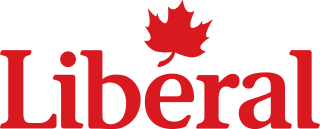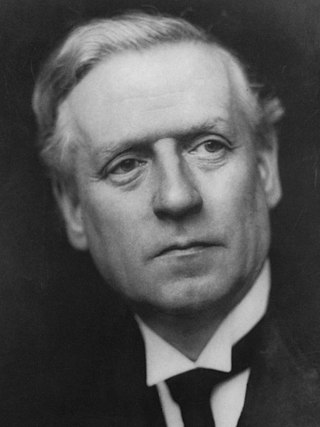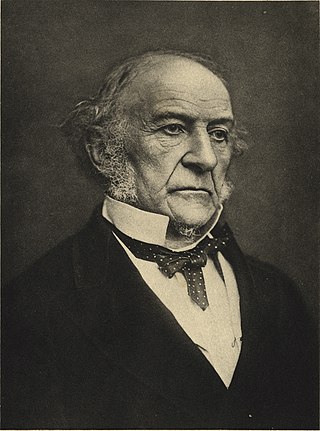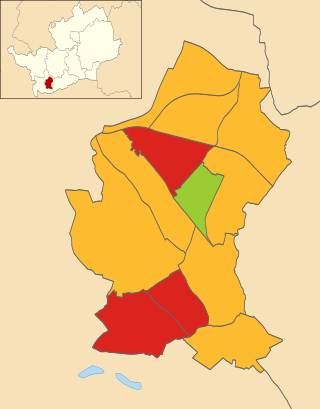
The Liberal Party of Australia is a centre-right political party in Australia. It is one of the two major parties in Australian politics, the other being the Australian Labor Party. The Liberal Party was founded in 1944 as the successor to the United Australia Party. Historically the most successful political party in Australia’s history, the Liberal Party is now in opposition at a federal level, although it presently holds government in Tasmania and the Northern Territory at a sub-national level.

The People's Party for Freedom and Democracy is a conservative-liberal political party in the Netherlands. The VVD, whose forerunner was the Freedom Party, is a party of the centre-right that tries to promote private enterprise and economic liberalism.

The Liberal Party of Canada is a federal political party in Canada. The party espouses the principles of liberalism, and generally sits at the centre to centre-left of the Canadian political spectrum, with their main rival, the Conservative Party, positioned to their right and the New Democratic Party positioned to their left. The party is described as "big tent", practising "brokerage politics", attracting support from a broad spectrum of voters. The Liberal Party is the longest-serving and oldest active federal political party in the country, and has dominated federal politics of Canada for much of its history, holding power for almost 70 years of the 20th century. As a result, it has sometimes been referred to as Canada's "natural governing party".

The Quebec Liberal Party is a provincial political party in Quebec. It has been independent of the federal Liberal Party of Canada since 1955. The QLP has always been associated with the colour red; each of their main opponents in different eras have been generally associated with the colour blue.

The December 1910 United Kingdom general election was held from 3 to 19 December. It was the last general election to be held over several days and the last to be held before the First World War.

The January 1910 United Kingdom general election was held from 15 January to 10 February 1910. The government called the election in the midst of a constitutional crisis caused by the rejection of the People's Budget by the Conservative-dominated House of Lords, in order to get a mandate to pass the budget.

The 1892 United Kingdom general election was held from 4 to 26 July 1892. It saw the Conservatives, led by Lord Salisbury again win the greatest number of seats, but no longer a majority as William Ewart Gladstone's Liberals won 80 more seats than in the 1886 general election. The Liberal Unionists who had previously supported the Conservative government saw their vote and seat numbers go down.

The 1886 United Kingdom general election took place from 1 to 27 July 1886, following the defeat of the Government of Ireland Bill 1886. It resulted in a major reversal of the results of the 1885 election as the Conservatives, led by Lord Salisbury, were joined in an electoral pact with the breakaway Unionist wing of the Liberals led by Lord Hartington and Joseph Chamberlain. The new Liberal Unionist party elected 77 members and gave the Conservatives their parliamentary majority, but did not join them in a formal coalition.

The 1885 United Kingdom general election was held from 24 November to 18 December 1885. This was the first general election after an extension of the franchise and redistribution of seats. For the first time a majority of adult males could vote and most constituencies by law returned a single member to Parliament, fulfilling one of the ideals of Chartism to provide direct single-member, single-electorate accountability. It saw the Liberals, led by William Gladstone, win the most seats, but not an overall majority. As the Irish Nationalists held the balance of power between them and the Conservatives who sat with an increasing number of allied Unionist MPs, this exacerbated divisions within the Liberals over Irish Home Rule and led to a Liberal split and another general election the following year.

The Liberal Party of New York is a political party in New York. Its platform supports a standard set of socially liberal policies, including abortion rights, increased spending on education, and universal health care.

Justin Pierre James Trudeau is a Canadian politician who has been serving as the 23rd prime minister of Canada since 2015 and the leader of the Liberal Party since 2013.
The Alberta Liberal Party is a provincial political party in Alberta, Canada. Founded in 1905, it is the oldest active political party in Alberta and was the dominant political party until the 1921 election, with the first three provincial Premiers being Liberals. Since 1921, it has formed the official opposition in the Legislative Assembly of Alberta several times, most recently from 1993 until 2012. Fourteen Liberals have served as Leader of the Opposition of Alberta.
The Liberal Party of Newfoundland and Labrador is a political party in the province of Newfoundland and Labrador, Canada. The party is the provincial branch, and affiliate of the federal Liberal Party of Canada. It has served as the Government of Newfoundland and Labrador since December 14, 2015. The NL Liberals were re-elected to a majority government in the 2021 provincial election.

The Liberal Party is a liberal political party in the United Kingdom that was founded in 1989 as a continuation of the original Liberal Party by members who opposed its merger with the Social Democratic Party (SDP) to form the Liberal Democrats. The party holds six local council seats. The party promotes a hybrid of both classical and social liberal tendencies.
The term swing refers to the extent of change in voter support, typically from one election or opinion poll to another, expressed as a positive or negative percentage point. For the Australian House of Representatives and the lower or unicameral houses of the parliaments of all the states and territories except Tasmania and the ACT, as well as Tasmania's upper house, Australia employs preferential voting in single-member constituencies. Under the full-preference instant-runoff voting system, in each seat the candidate with the lowest vote is eliminated and their preferences are distributed, which is repeated until only two candidates remain. While every seat has a two-candidate preferred (TCP) result, seats where the major parties have come first and second are commonly referred to as having a two-party-preferred (TPP) result. The concept of "swing" in Australian elections is not simply a function of the difference between the votes of the two leading candidates, as it is in Britain. To know the majority of any seat, and therefore the swing necessary for it to change hands, it is necessary to know the preferences of all the voters, regardless of their first preference votes. It is not uncommon in Australia for candidates who have comfortable leads on the first count to fail to win the seat, because "preference flows" go against them.

In Australian politics, the two-party-preferred vote is the result of an election or opinion poll after preferences have been distributed to the highest two candidates, who in some cases can be independents. For the purposes of TPP, the Liberal/National Coalition is usually considered a single party, with Labor being the other major party. Typically the TPP is expressed as the percentages of votes attracted by each of the two major parties, e.g. "Coalition 50%, Labor 50%", where the values include both primary votes and preferences. The TPP is an indicator of how much swing has been attained/is required to change the result, taking into consideration preferences, which may have a significant effect on the result.

The Liberal Democrats are a liberal political party in the United Kingdom, founded in 1988. The current leader of the party is Ed Davey. They are the third-largest party in the United Kingdom, with 72 members of Parliament (MPs) in the House of Commons. They have 79 members of the House of Lords, four members of the Scottish Parliament, one member in the Welsh Senedd, and more than 3,000 local council seats. The party holds a twice-per-year Liberal Democrat Conference, at which party policy is formulated. In contrast to its main opponents' rules, the Liberal Democrats grant all members attending the conference the right to speak in debates and vote on party policy, under a one member, one vote system. The party also allows its members to vote online for its policies and in the election of a new leader.
The New Democratic Party is a federal political party in Canada. Widely described as social democratic, the party sits at the centre-left to left-wing of the Canadian political spectrum, with the party generally sitting to the left of the Liberal Party. The party was founded in 1961 by the Co-operative Commonwealth Federation (CCF) and the Canadian Labour Congress (CLC).

The 2011 Canadian federal election was held on May 2, 2011, to elect members to the House of Commons of Canada of the 41st Canadian Parliament.

Elections to Watford Borough Council were held on 3 May 2012. Three years in every four, a third of the council retires and elections are held.














